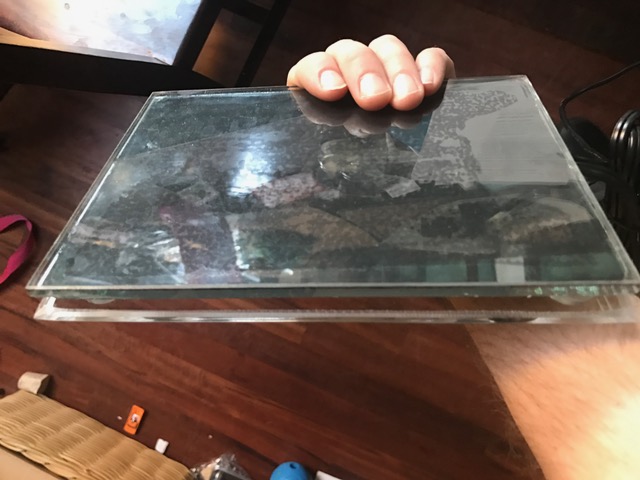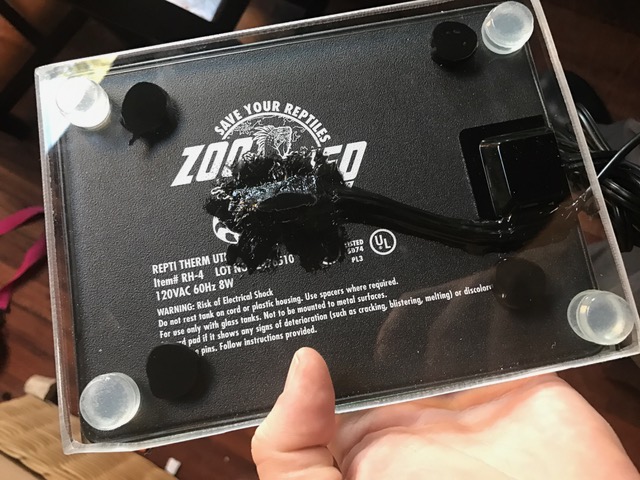» Site Navigation

0 members and 1,440 guests
No Members online
Most users ever online was 47,180, 07-16-2025 at 05:30 PM.
» Today's Birthdays

» Stats

Members: 75,934
Threads: 249,129
Posts: 2,572,283
Top Poster: JLC (31,651)
|
-
I keep hearing that 75 f as the lowest for ambient temps and 78-80 as more ideal. from what I can tell so far keeping closer to 80 helps them feel more comfortable coming out at night. i got so frustrated with balancing heat and humidity with my Brazilian Rainbow Boa a few years ago that I followed one keepers suggestions and modified a heat mat to go inside a sealed up enclosure (not conventional). baby BRB's need a lot of humidity so it kind of forced me to figure out the issue. Now that we have BP's I have created a similar enclosure along a similar theme but less humid, fully insulated and mostly sealed up (20 gal longs on their side with plexiglass sliding doors with minimal ventilation holes. I'm keeping a close eye on mold and removing droppings promptly. I use a Herpstat 2, controlling two heat mats, one under the cool hide and one under the hot hide and no other heat source. the hot end is 88-90 in the hide, the cool side is 78f, with ambient temps around 76 (at ground level, hotter in the upper thermocline). for my heat mats, which I use for my juvenile red foot tortoise, my BRB and PB's, I have had 1/4 inch glass cut , which acts as a diffuser/heat balast, in my newest iteration I have opted not to place the probe between the heat mat and glass but instead, silicone it to the back and sandwiched with a piece of plexiglass or glass. the additional piece of glass helps ensure against heat encapsulation, allowing for adequate heat diffusion, as I've already broken the glass once on an early version (though it was unregulated). I use 1/4 silicone spacers and four large dabs of fish tank silicone to hold it securely together to prevent a persistent burrower from getting in between. our snakes seem very happy with this arrangement, they've each had a nice shed and are eating well and lounging about at night, outside their hides. I use cypress mulch to help stabilize the humidity. if you wanted to add a second heat mat for the low end, you might consider adding it with a jump start t-stat. ours just arrived in the mail, one I'm using for another enclosure, and I'm impressed with the robust quality for the money (thanks to the folks on this forum for this helpful tip!). here are some photos of the heat mat sandwich. I did run this design by the maker of the herpstat recently and he gave it the nod, and made the suggestion of siliconing the probe to the glass as I'm leery of placing it between the mat and the glass it is adhered to, because, according to zoo med, can adversely effect the thermal transfer. it doesn't sound like this is an issue with flex watt, which is a much lower wattage. I opted to go for the underside of the heat mat to protect the probe from getting peed or pooped on and throwing off the reading, which he said can be an issue if you paste it to the top of the glass. anyway, it's a bit involved to make but I thought I'd share it as one possible solution to the humidity/temp juggling act. here is the top:
Here is a shot of the bottom showing the spaders, silicone and routing of the probe.

"Keep in mind I am sharing what I have learned and what my experiences have taught me. I am not an expert, and it's always good to weigh varying perspectives... Doing it "correctly" often means balancing what works for others with what works for you, given your parameters and observations."
Family Critter List: Bumblebee BP, Fire Spider BP, Brazillian Rainbow Boa, Planted Aquarium, Red-Foot Tortoise, Dwarf Hamster, Holland Lop Rabbit, 6 egg laying chickens, 37 in freezer camp, last but not least Flap Jack, our Pit mix rescue dog who keeps everyone in line.
-
 Posting Permissions
Posting Permissions
- You may not post new threads
- You may not post replies
- You may not post attachments
- You may not edit your posts
-
Forum Rules
|












 Reply With Quote
Reply With Quote